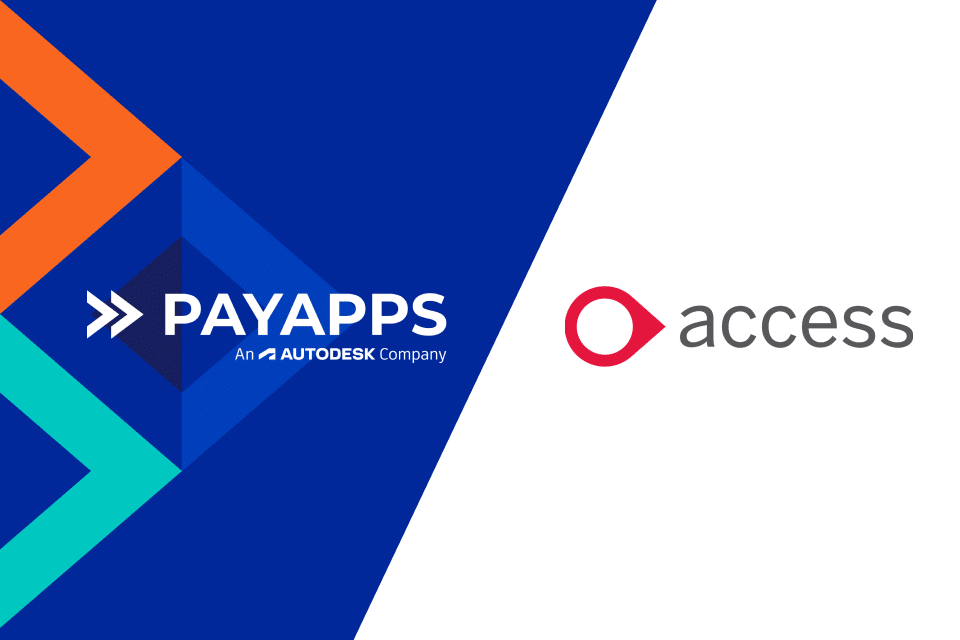Complete the form below to watch the webinar recording.
Payment processes in the construction industry are nearly always a contentious subject. Inefficient and old-fashioned, for many companies making payments can be just as much of an issue as ensuring they receive them.
In partnership with The National Federation of Builders (NFB), we held a webinar to discuss the industry’s current payment processes (watch webinar below), the initiatives that are being launched to improve them and to explore how these processes can be modernised, including the benefits of digitisation.

About the NFB
The National Federation of Builders (NFB) represents builders, contractors and house builders across England and Wales. As one of the UK’s longest standing trade bodies, it was created to represent the building profession and to promote conditions its members need to thrive and contribute to the economic success of the UK.
The primary aim of the organisation is to help their members build prosperous businesses and create optimal conditions for the construction industry.
The prompt payment landscape
The Federation of Small Businesses reports that 50,000 small businesses close annually, and it is estimated that there is over £23 billion of late invoices impacting the cash flow of these businesses.
The Government has introduced several measures to try to address these problems within the construction industry, for example Project Bank Accounts (link to PBA blog) to try to ensure subcontractors are protected in case of contractor insolvency. PBA’s are still in their infancy, and although they have already been implemented for public sector contracts in Wales and Scotland, they have yet to be mandated in England.
The Prompt Payment Code was another initiative introduced by the Government to try to address payment problems right across the sector, in both private and public projects. The Code requires contractors to make the majority of their payments within 30 days (a target that has just been reduced from 60 days), but when you look at the actual figures, many large companies are still not meeting this target. In addition, as the Code is currently voluntary, there are no real consequences for them failing to do so.
NFB’s actions on late payment
The NFB is continuously lobbying the Government to address the issue more fully, advocating the full adoption of Project Bank Accounts, and ‘calling out’ those large companies that are failing to pay their subcontractors on time, particularly for those that are signed up to the Prompt Payment Code.
NFB’s Major Contractor Group is leading by example, allowing real-life case studies from larger contractors to share with the Government in order to demonstrate that fair payment is indeed possible.
One area in particular that the NFB are working towards is closing down the excuses that late payers make surrounding resource limitations and sign-off delay.
The Payapps view
This is where NFB and Payapps are in total alignment. Commenting in a recent Construction News article Angus McAlpine, Head of Partnerships for Payapps, stated:
“We welcome this support for the industry’s small businesses and the acknowledgment that good payment practices is the responsibility of those at the highest level within an organisation.
However, late payment in the construction industry is often the result of process failings, rather than deliberate malpractice, which is why digitisation of the payment process should remain a key objective for the industry.”
At Payapps, we fully believe that late and poor payment practices are often a result of inefficient and inadequate processes, rather than a deliberate action. This is why we believe the industry should hold digitalisation of payment practices as a key objective.
Stepnell’s digital transformation
Stepnell is a 150-year-old, family-owned construction business and a member of the NFB – sharing many of the organisation values and ambitions. Stepnell have recently undertaken a major modernisation of their construction payment processes.
Part of the NFB webinar (watch below) included an interview with David Crombie, Group Chief Accountant at Stepnell about their payment process pre-and post-digitisation.
Prior to modernisation, the payment process was a very long-winded and manual task for the company. Huge swathes of time were eaten up as pieces of paper were passed from one person to another and the company itself had very little visibility of its liabilities or cash flow, making forecasting and planning very difficult. Stepnell decided to move to a digitised system in order to provide greater visibility all round.
Many companies may be concerned about the implementation process to make such a huge change to their way of working, but as David explained, for Stepnell “it was a fairly seamless transition.” By engaging with all relevant parties throughout the process, everyone was aware of the benefits the new system would bring, not to mention the comprehensive support provided by Payapps, not only training and assisting the Stepnell team but also their subcontractors if any issues arose.
Stepnell also pointed to the importance of increased collaboration with their supply chain members. By bringing them in as part of this project, it has made them feel involved and as a result, improved uptake and the speed at which they have transitioned to a new way of working.
It is often fear that holds businesses back from making significant changes to their ways of working, but Stepnell represents a clear case that modernising construction payments is not just a good thing to do for business, but the right thing to do for the industry as a whole.
Complete the form below to watch the webinar recording.





